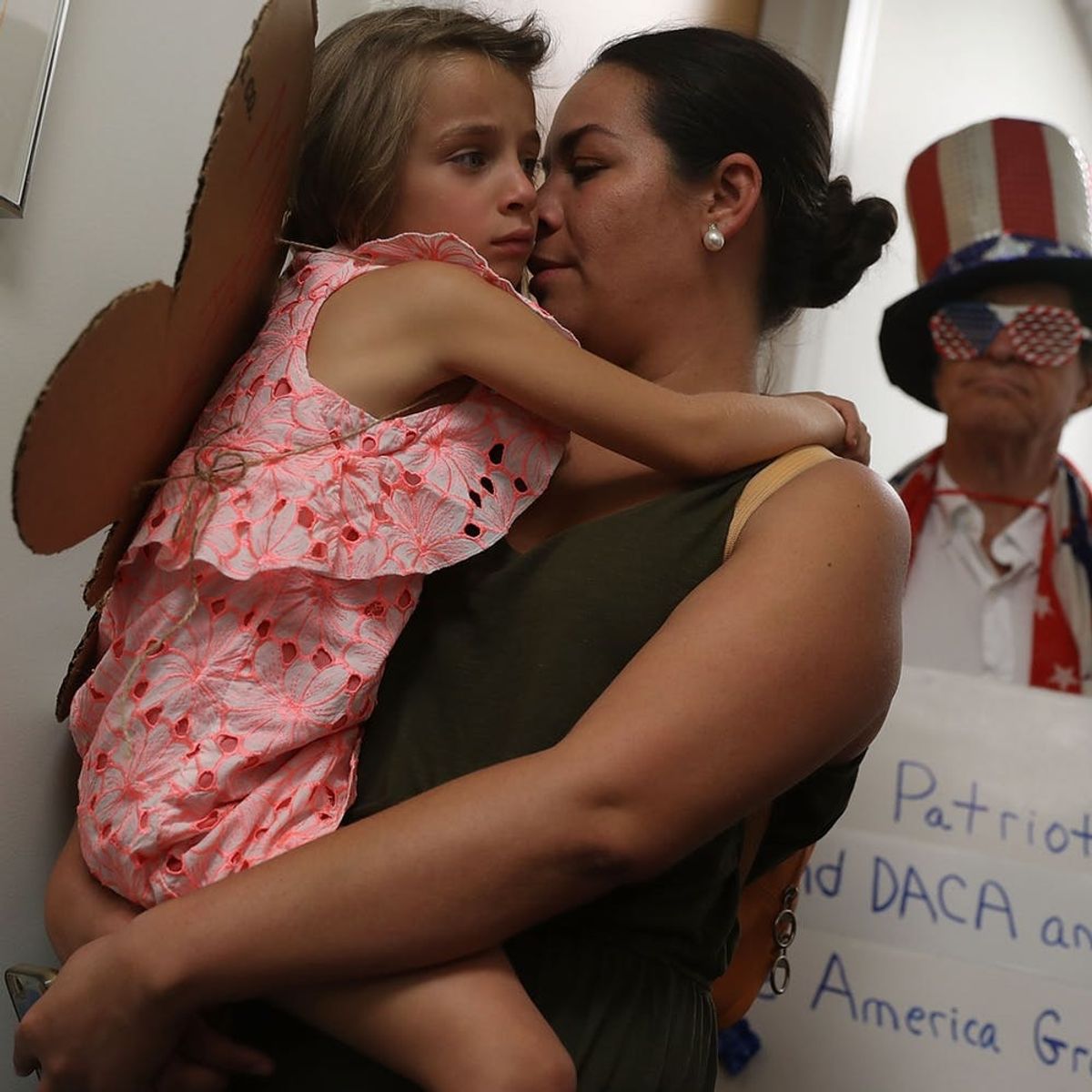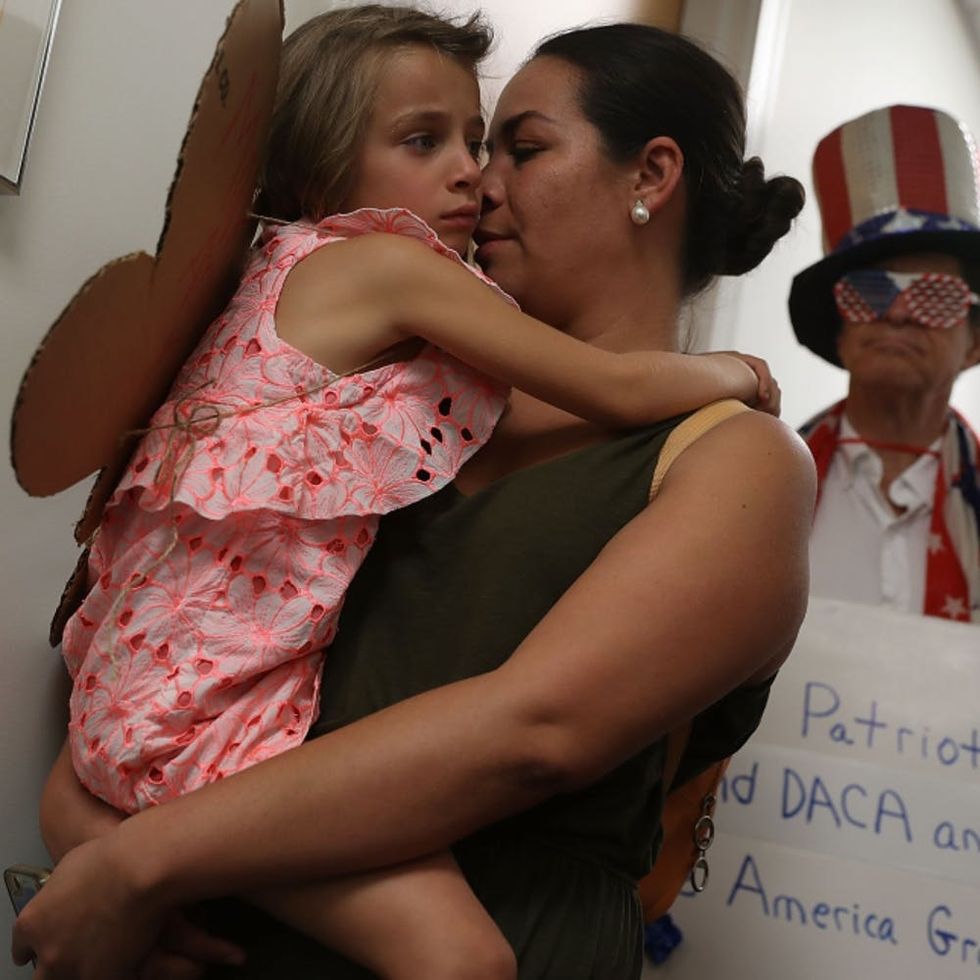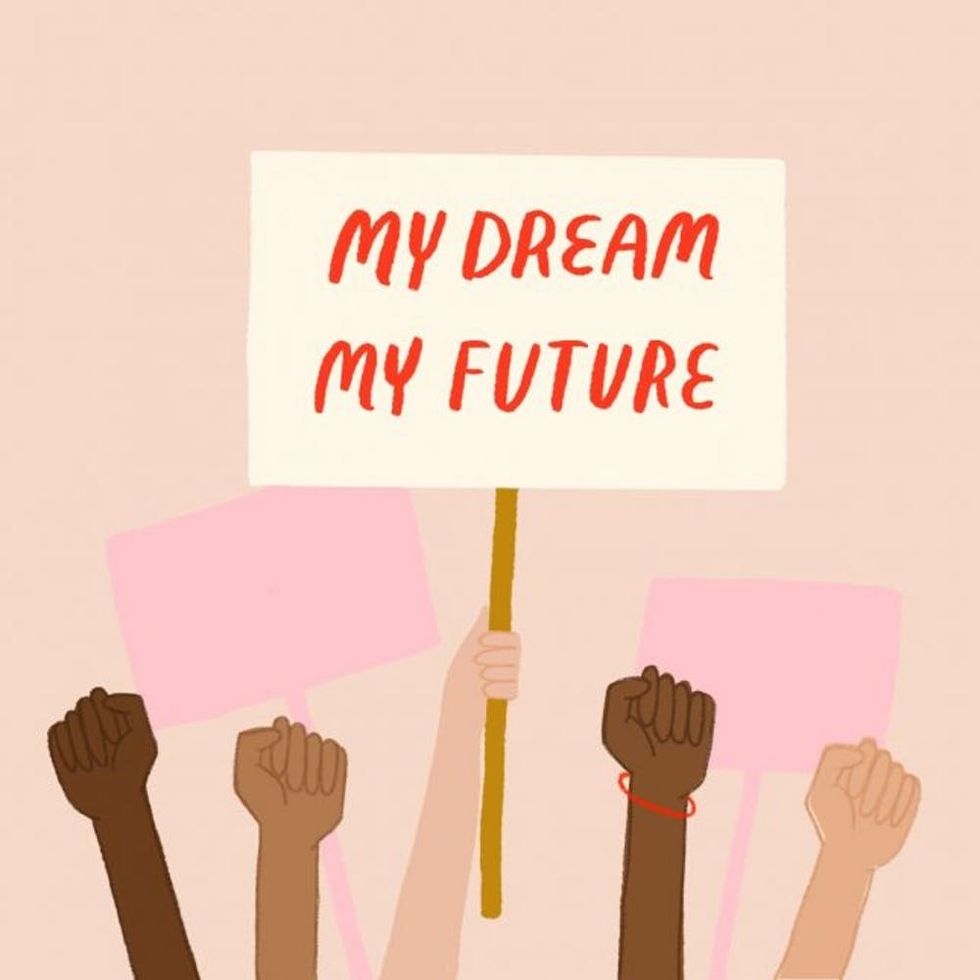A Controversial Change to the 2020 Census Will Hurt Immigrant Communities

The Department of Commerce has amended the US Census in a way that will harm undocumented Americans.
Commerce Secretary Wilbur Ross announced Monday that the 2020 Census will include a question that asks whether or not the respondent is a US citizen. The Department of Justice recommended the Census change, which they say will help enforce the Voting Rights Act (VRA) that protects citizens’ ability to participate in elections. It might seem fair enough, except for one kind of major problem: Undocumented people probably don’t want to out their immigration status to the government. This means that many people will likely opt out of the Census, and the repercussions will be huge.

What young DACA recipients think about the change:
Immigrant and civil rights groups have already condemned the move as an intimidation tactic against immigrant communities. The Trump administration has already removed Temporary Protected Status (TPS) for hundreds of thousands of immigrants and made protections for DACA recipients a bargaining chip; this latest move is only deepening immigrant communities’ distrust of the federal government.
Arlin is a 19-year-old DACA recipient who moved to the US from Mexico at the age of four and now lives in Charlotte, North Carolina. She tells Brit + Co that her family will not be filling out the 2020 Census because “Trump’s racist administration can not be trusted.”
She repeats the phrase “Trump’s racist administration” when describing how policy decisions have escalated the threat of ICE and CBP enforcement and made millions of immigrants feel hated and alone.
Jesus Estrada, a 17-year-old fellow DACA recipient in New Jersey, says that his family is unlikely to fill out the 2020 Census too.
“Although my sister and I may be slightly protected under DACA, my parents have no form of protection from deportation,” Estrada tells us. “Consequently, responding to a Census which includes a question about citizenship may deter my parents from filling it out because they fear that their undocumented status would be completely revealed to the government. In fact, this is the same fear that inhibits my parents from traveling beyond our state’s border, as ICE raids have become normalized.”
The potential consequences:
Reyna Wences, co-founder and lead organizer of Organized Communities Against Deportation, an undocumented immigrant rights group in Chicago, tells Brit + Co that despite the DOJ’s claims that the Census amendment will help enforce the VRA to make elections fairer, the opposite is true. Wences implies that this outcome is more than coincidental.
“Attorney General Jeff Sessions has a track record of abusing his power to suppress voters rights and civil rights violations in communities of color — especially Black communities,” Wences says.
In fact, Sessions lauded a 2006 Supreme Court decision to gut the VRA — the same law he now claims he wants to enforce.
Wences also explains that the Census question will not only deter undocumented immigrants themselves from filling out the form, but also citizens who have undocumented family members.
“People are already cautious and anxious about giving information to federal agencies, as we have seen with undocumented youth who qualify for DACA but don’t want to apply because it would mean turning over their information,” Wences says.

If undocumented people do not fill out the Census, it will lead to inaccurate counts in communities with large undocumented populations, and change the way communities are represented in government. “The DOJ is setting a precedent for the redistricting of communities with big immigrant populations,” Wences says.
Inaccurate Census counts could also prevent taxpayer-funded resources and services from being allocated accordingly in communities with large immigrant populations. (And, contrary to popular belief, undocumented immigrants DO pay taxes and are entitled to access what they’ve paid for.) This means that critical services such as public education could receive even less funding than they already do.
“In places like Chicago,” Wences says, “our mayor is closing schools left and right… Our communities end up being in the middle of these policies and our communities are being sucked dry of the little money that’s available.”
By asking respondents to disclose whether or not they’re citizens, the new Census question also adds to the surveillance of undocumented people. This move adds to the litany of insidious surveillance measures undocumented people already face. The Detroit News reported in 2017 that federal law enforcement agents were using Stingrays (a controversial cell phone-locating technology) to track and locate undocumented immigrants in Detroit. A Daily Beast investigation last year also found that information obtained by the NSA was being leaked to Immigration and Customs Enforcement (ICE) in order to surveil undocumented people.
What happens next:
California Attorney General Xavier Becerra has already challenged the legality of the new Census question in an op-ed for the San Francisco Chronicle and at least 12 states will sue the Trump administration because of it, according to a New York Times report.
In the meantime, immigrant communities recognize the dangerous nature of the question and want real action that protects them and their families. Noting that the deadline for congressional action on DACA passed on March 5, Arlin says: “Our community needs a permanent solution. We need a Dream Act. I want to hold our local communities accountable; we need ICE out of workplaces, schools, and communities.”
Estrada echoes these sentiments. “The conversation surrounding DACA and undocumented immigrants must not end,” he tells us. “These people are the children, scholars, teachers, lawyers, doctors, and determined individuals of this country. They are some of the most hardworking individuals I know, and they are all American.”
What do you think? Tell us on Twitter @BritandCo.
(Photo via Joe Raedle/Getty. Illustration via Sarah Tate/Brit + Co)











